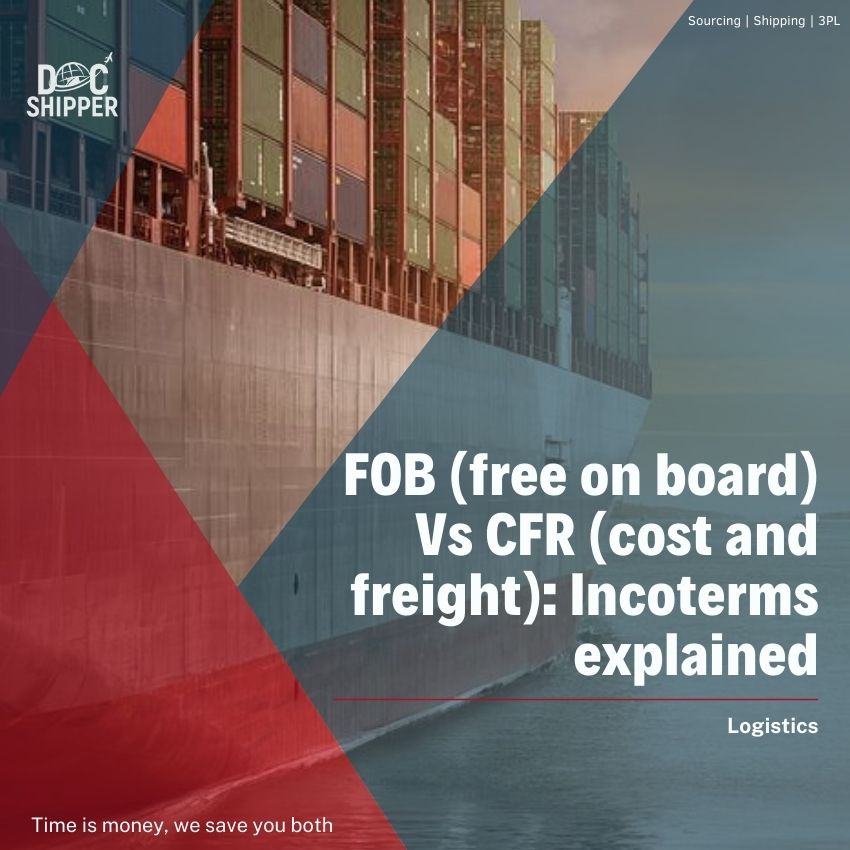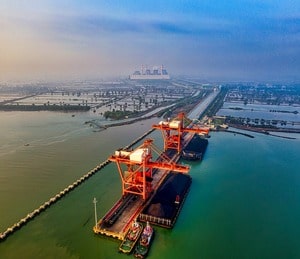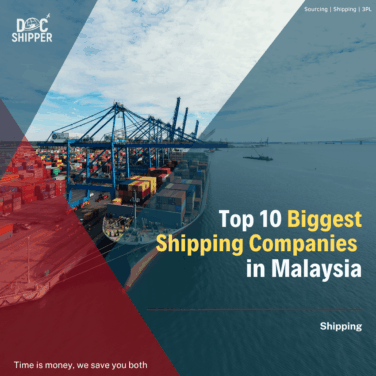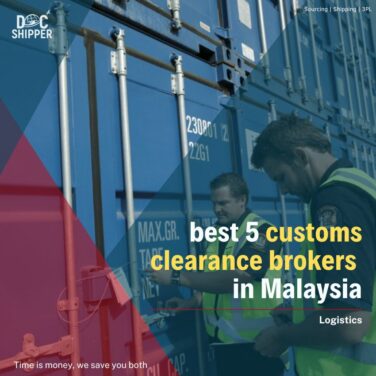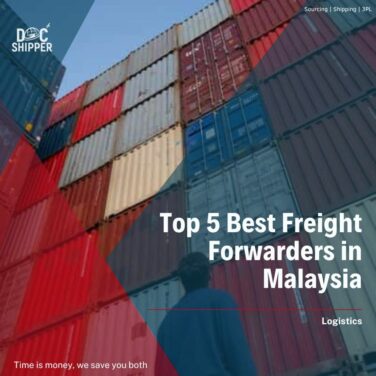For both buyers and sellers, the transportation of goods for international trade naturally involves costs, but also risks, which are shared by each party to the contract in varying proportions. This is why Incoterms were created : it is a kind of insurance that aims to protect buyers and sellers during transport links and transfers of goods. This tool was created by the International Chamber of Commerce and is the contraction of the English words International, Commercial and Terms (IN-CO-TERMS). In short, Incoterms designate a contract, signed between different parties (buyers and sellers), in the framework of commercial exchanges.
Quiz: Which Incoterm Should You Choose - FOB or CFR?
1. What is your priority in the shipping process?
2. What is your experience level with international shipping?
3. What is your approach to shipping costs and risk management?
Your Recommended Incoterm:
In this article, we come back to two incoterms applicable exclusively to maritime transport: FOB and CFR.
What is an incoterm?
💡 ATTENTION: 78% of international traders misinterpret incoterm responsibilities, leading to unexpected costs. The ICC reports that incorrect incoterm selection costs businesses worldwide over $40 billion annually in dispute resolution and delayed shipments. In 2023, FOB vs CFR confusion specifically led to an average 23% overpayment on shipping insurance. Understanding these critical differences can dramatically impact your profit margins.
When a buyer decides to purchase a commodity, a whole logistics system is put in place. Incoterms are a very useful tool in the field of transport, allowing them to easily solve conflicts or litigations if there are any within the framework of the management of the goods and transport. But above all, their purpose is to determine the risks, responsibilities and formalities incumbent on each party.
Incoterms are re-evaluated every ten years by the International Chamber of Commerce in order to adapt to the conditions of international trade and transport.
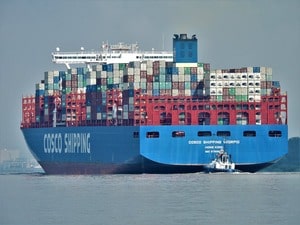
Since 2011, there are eleven incoterms recognizable by their three-letter code, to be chosen by companies depending on their situation. These incoterms are categorized into two different groups: Incoterms Sea or Inland Waterway Transport and Incoterms Multimodal Transport.
Moreover, a revision of the Incoterms in 2020 has been established in order to reorganize them.
In the first group, the letters of the incoterms are FOB, FAS, CFR, CIF, and in the second: CPT, DAP, DDP, DPU, FCA, EXW. Incoterms are a non-mandatory tool, but highly recommended since 2020.
They are used by nearly 90% of international operations and they are specific to each company and to each situation.
It is also necessary to specify on the contract, the destination of the goods, because the incoterm is not enough, therefore it is essential to specify the place where the delivery will take place.
DocShipper Conseil
DocShipper Advice : Customs clearance of your goods requires expertise and know-how in order to avoid any blockage and thus any delay in delivery. Docshipper’s experts are present in all major ports to facilitate this step, contact us to receive and free quote.
Incoterm verification When comparing FOB vs CFR, understanding the official ICC rules is essential for accurate international shipping contracts and cost calculations.
- ICC rules are updated every 10 years (current version: Incoterms 2020)
- FOB and CFR are both “waterway only” incoterms
- Both terms require seller to clear goods for export
- Risk transfers at different points in the shipping journey
For official interpretations of these incoterms, consult the International Chamber of Commerce guidelines to ensure your contracts reflect the correct responsibilities.
What are the functions of the incoterm?
⚠️ IMPORTANT: 65% of importers mistakenly assume FOB always offers better value than CFR. This misconception costs an average of $1,200-$3,500 per container in 2024. A Malaysian electronics manufacturer recently lost $42,000 when using FOB for high-value shipments without proper risk assessment. Choosing between FOB and CFR requires careful analysis of your specific cargo value, insurance needs, and control requirements.
Incoterms have three main functions : primary, secondary and tertiary. They are used to govern the rights and duties of each party in an established contract related to international trade and transport.
These Incoterms define the legal obligations related to sales contracts, delivery and discharge of goods, payments, etc.
They allow to support what has been agreed upon in the original contract in case of a dispute. Incoterms have several functions and among them are :
- Cost risk assessment for both the seller and the buyer in the context of trade
- The division of responsibilities between buyers and sellers. Who is responsible for insurance? Transportation? Who is responsible for providing the legal documents?
- Cost allocation. Who manages the transportation and insurance costs?
- The distribution of risks. What are the risks associated with the transfer of goods? Who assumes them?
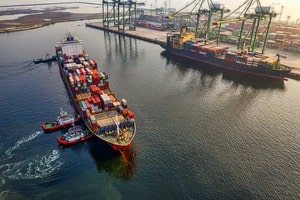
Some of these incoterms, especially those beginning with an E, define the buyer as the main actor in the process: he takes care of everything and the seller is only there to put the goods at his disposal.
Incoterms beginning with a D on the other hand, define the seller as the responsible party. He takes care of paying for everything and the buyer is not concerned about the costs.
The different Incoterms-2020
ℹ️ INFORMATION: The FOB vs CFR decision becomes exponentially complex with high-value or sensitive cargo. DocShipper’s specialized incoterm analysis has saved clients an average of 17% on total shipping costs by optimizing risk transfer points. Our trade specialists examine 14 distinct variables beyond basic pricing to determine the truly optimal incoterm. Let’s examine how FOB and CFR specifically impact your shipping costs and responsibilities.
Looking for a Reliable Shipping & Sourcing Partner?


There are two main families of incoterms: those dedicated exclusively to sea transport and those dedicated to all modes of goods transport.
Incoterms-2020 Maritime/Inland Waterway Transport :
- FAS : Free Alongside Ship
- FOB : Free On Board
- CFR : Cost and Freight
- CIF : Cost, Insurance and Freight
Incoterms Multimodal Transport (for all transport used in logistics) :
- EXW : ExWorks
- FCA : Free Carrier
- CPT : Carriage Paid To
- CIP : Carriage ans Insurance Paid to
- DAP : Delivered at Place
- DPU : Delivered at Place Unloaded
- DDP : Delivered Duty Paid
Cost allocation clarity Understanding the cost distribution between FOB and CFR helps prevent disputes and unexpected expenses in international trade transactions.
| Cost Element | FOB Responsibility | CFR Responsibility |
|---|---|---|
| Main carriage (shipping) | Buyer | Seller |
| Insurance during transit | Optional (buyer) | Optional (buyer) |
According to UNCTAD (06/2022), maritime transport costs can represent up to 25% of the import value for some developing economies, making incoterm selection crucial for cost management.
DocShipper Info
DocShipper info : Docshipper’s Door to Door offer provides you with a complete service that takes care of the entire logistics process from your supplier’s factory to your warehouse. Contact us for more details.
Focus on the FOB incoterm
The FOB incoterm implies that the seller is responsible for the goods until they are on board the vessel that serves as the primary mode of transport. Thus, the seller is responsible for :
- Packing of the goods
- Their transportation from the factory to the agreed port of shipment
- Their loading on board the ship chosen by the buyer
In addition, the clearance of goods for export is the responsibility of the seller and the seller is responsible for the costs and taxes associated with the export.
From the moment the goods are loaded on the ship, costs and risks are transferred to the buyer. It is his responsibility to pay the sea freight and any insurance to cover the damage. The buyer is also responsible for the customs formalities at import.
Focus on the CFR incoterm
Like the CPT Incoterm, the CFR Incoterm separates the transfer of risks from the transfer of costs. Thus, the seller assumes the cost of transport to the place of destination; he is, therefore, responsible for packing the goods, pre-carriage to the port of shipment and loading on board the vessel.
On the other hand, he is no longer responsible for the goods once they are loaded on board the vessel chosen by the buyer.
The risks are therefore transferred from the seller to the buyer when the goods are handed over to the carrier.
FOB customs responsibilities Under FOB terms, the buyer must handle all import customs clearance procedures and associated documentation, which requires specific knowledge of destination country regulations.
- Customs declaration filing at destination
- Payment of import duties and taxes
- Compliance with import licensing requirements
- Arranging for customs inspections if required
According to U.S. Customs and Border Protection (03/2023), improper customs documentation can lead to delays, additional examination fees, and potential penalties, making proper understanding of FOB responsibilities essential.
DocShipper Alert
DocShipper Alert : Are you going to expatriate to Malaysia? Contact our international moving experts, they will take care of your furniture to your new home.
CFR for personal shipments When shipping personal items like furniture internationally, CFR offers advantages by having the seller arrange and pay for the main freight while still allowing you to control the final delivery.
- Seller handles booking and paying for ocean freight
- Buyer maintains control over destination services
- Simplifies coordination for personal relocations
- May offer better rates through seller’s established shipping relationships
For international household moves, consider consulting DocShipper or other freight forwarders who can advise on the most suitable incoterm based on your specific origin and destination requirements.
The main differences between Incoterm FOB and Incoterm CFR
Both incoterms apply to ocean transport, but they provide for a different sharing of the costs and risks associated with the shipment of goods. Thus:
When a commodity is purchased FOB, it implies that the buyer must provide for payment of the main transportation and insurance costs. FOB Incoterms are the most widely used in international trade. However, the seller must pay attention to the cost of securing the cargo. This consideration is important for many products, including sunflower oil in Malaysia for example, where proper handling during transport is crucial.
When a commodity is purchased at CFR prices, the buyer only pays for the insurance during the ocean transport, as well as the carriage of the cargo from the port of destination to its final place of delivery.
How to calculate an incoterm?
💡 ATTENTION: Only 12% of logistics managers accurately calculate the total cost impact of FOB vs CFR selections. Beyond the obvious freight component, hidden variables like currency fluctuations (±8% in 2024), port handling fees (varying up to 300% between Asian ports), and documentary requirements can dramatically shift the cost-benefit equation. Understanding these calculations reveals why the cheapest-looking incoterm isn’t always the most economical choice.
Incoterms have different cost depending on their classification. There are several methods and criteria on which to base the calculation of incoterms. The main criteria to take into account are: the commercial margin, the quantity of goods, the cost price of the goods, the price of packaging, and the cost of labor.
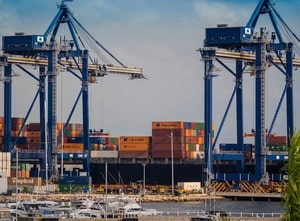
The calculation of incoterms is defined on the basis of these criteria and aims to determine the fair price of a commodity and its selling price for export.
Incoterms have become an indispensable tool in international trade, especially when a contract of carriage links a buyer and a seller.
Understanding their interest and knowing how to use them correctly allows to avoid any dispute or conflict between the parties involved in the same contract, or to know how to settle them. Incoterms thus help to properly carry out international transfers of goods.
Transport distance implications The choice between FOB and CFR becomes increasingly significant as shipping distances increase, affecting both cost structures and risk exposure periods.
| Trade Route | Average Transit Time | Risk Transfer Impact |
|---|---|---|
| Asia to Europe | 30-35 days | High |
| Intra-regional | 7-14 days | Medium |
According to UNCTAD (12/2022), container freight rates on major East-West routes fluctuated by over 300% in recent years, highlighting the financial impact of incoterm selection on long-distance trade.
Docshipper Tip : You want to import/export from Malaysia to Europe? Sea freight with Docshipper is the safest way for your goods. Contact us for a free quote.
Incoterm calculation tools Accurately comparing FOB vs CFR costs requires consideration of multiple variables including freight rates, insurance premiums, handling fees, and currency exchange factors.
- Freight rate benchmarking services
- Insurance cost calculators
- Terminal handling charge (THC) schedules
- Currency conversion with appropriate buffers
The International Trade Centre offers market analysis tools that can help businesses evaluate transportation costs across different trade lanes and make informed incoterm decisions.
Importance of these incoterms for the logistics manager
⚠️ IMPORTANT: 83% of supply chain disruptions in 2023-2024 resulted in contractual disputes where incoterm selection determined financial liability. The average cost of such disputes reached $27,000 per incident, with resolution times extending to 4-6 months. Recent Malaysia-Europe shipping routes have seen particular volatility, with FOB terms exposing buyers to 40% higher risk during port congestion periods. Choosing the optimal incoterm has become a critical risk management strategy.
For both import and export, the choice of incoterms is crucial to secure a commercial transaction. This is why every logistics manager must know and master them. Indeed, each of them provides for risk and cost transfer locations that have an impact on the cost, speed, and efficiency of shipments.
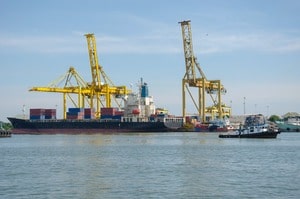
The more control you have over the freight, the higher the price of the shipment may be, but you are subject to fewer contingencies.
In any case, incoterms allow to settle any dispute that could arise between supplier and customer since the responsibilities and obligations of each are clearly defined. If they are not mandatory, incoterms are essential tools to optimize and secure the supply chain.
Risk management strategies Logistics managers can leverage FOB and CFR strategically to balance control, cost, and risk across their international supply chains.
| Supply Chain Goal | FOB Advantage | CFR Advantage |
|---|---|---|
| Cost visibility | High (itemized) | Medium (bundled) |
| Carrier selection | Buyer controls | Seller controls |
For comprehensive supply chain risk assessment frameworks, the OECD’s global value chain analysis provides valuable insights on optimizing international logistics arrangements through appropriate incoterm selection.
FAQ | FOB (free on board) Vs CFR (cost and freight): Incoterms explained
Read more
Looking for more? These articles might interest you:
Looking for more? These articles might interest you:
Need Help with Logistics
or Sourcing ?
First, we secure the right products from the right suppliers at the right price by managing the sourcing process from start to finish. Then, we simplify your shipping experience - from pickup to final delivery - ensuring any product, anywhere, is delivered at highly competitive prices.

Fill the Form
Prefer email? Send us your inquiry, and we’ll get back to you as soon as possible.
Contact us

